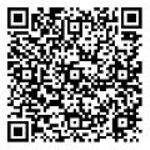漢文佛典的動詞「住」與「著」—詞彙與短語的探討
作者:高婉瑜(淡江大學中國文學系)
卷期:55卷第1期
日期:2010年3月
頁碼:1-27
DOI:10.3966/207451922010035501001
摘要:
動詞「住」與「著」(着)均有〔留止/接觸〕與〔持續〕的語義徵性,語義方面部分重疊,但兩者仍有區隔。特別的是,佛典的「著」類詞語通常帶有濃厚的佛教味道,其中的「執著」還成為現代常用詞。本文認為動詞「住」與「著」透過了「隱喻」展開語義泛化,然而,「住」的意象圖式是「始源─路徑─終點」與「容器」圖式,「著」是「容器」圖式,受到意象圖式、語義徵性、佛教教義、語音的影響,佛典的「著」類詞語常帶有負面色彩義。
關鍵詞:「住」、「著」、意象圖式、漢文佛典、隱喻
 《詳全文》
《詳全文》

Journal directory listing - Volume 55 (2010) - Journal of NTNU:Linguistics & Literature【55(1)】March
A Cognitive Study on Verb“Zhu”and“Zhuo”in Chinese Buddhist Scriptures: Focus on Lexicon and Phrase
Author: Wan-Yu Kao(Department of Chinese Literature, Tamkang University)
Vol.&No.:Vol. 55, No. 1
Date:March 2010
Pages:1-27
DOI:10.3966/207451922010035501001
Abstract:
The verb “Zhu” and “Zhuo” contained the semantic features “contact” and “continuance”. Although the meanings of “Zhu” and “Zhuo” overlapped, they still had some differences. The pronunciation of many words and phrases that contained “Zhuo” had a strong Buddhist flavor, while“ZhiZhuo” gradually became a common word in today’s vocabulary.
During the course of this study, it was discovered that the meanings of “Zhu” and “Zhuo” had suffered semantic bleaching through the process of metaphori. The image-schematic structure of“Zhu” are the “source-path-goal schema” and “container schema.” and of “Zhuo” is the “container schema." "Zhu" and "Zhuo" were not only influenced by both image schema and semantic features, but also by Buddhist dharma and pronunciation as well. Many words and phrases that contained“Zhuo” had negative meanings and were often collocated with the morphemes that had negative meanings.
Keywords:“Zhu”,“Zhuo”, image-schematic structure, Chinese Buddhist Scriptures, metaphor